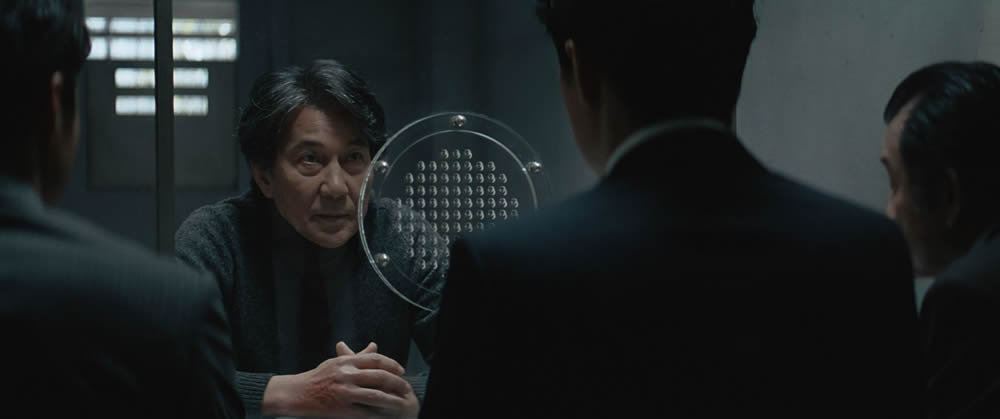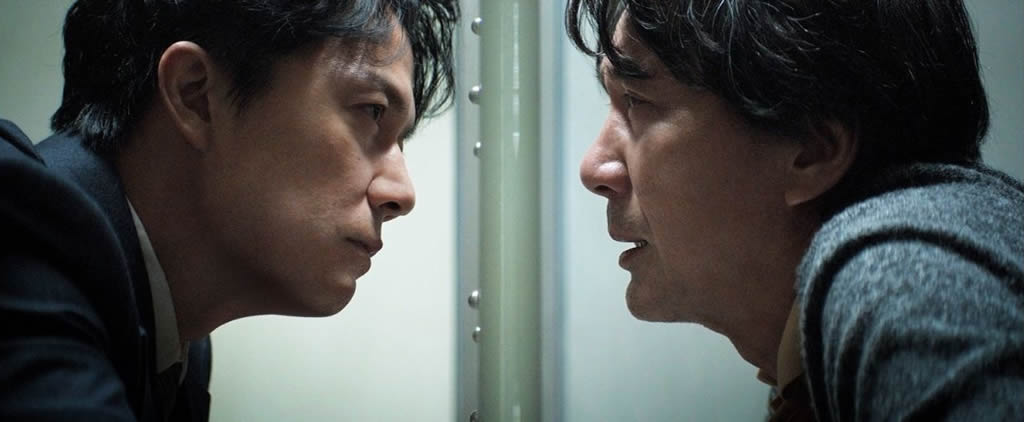[dropcap style=”font-size:100px;color:#992211;”]E[/dropcap]schewing the snappy edit typical of the thriller genre in favour of a dialogue-driven narrative, The Third Murder is a legal procedural with a difference; deliberate pacing requires full attention, creating an engrossing experience. Certainly the film’s ambiguity—ultimately there are no answers—won’t be for everyone, but as an exercise in philosophical musings on the nature of true justice, it’s thought-provoking. Does anyone ever deserve to be killed, and are there some people who never should have been born?

Director-writer Hirokazu Kore-eda found himself inspired by the idea of what would happen if a lawyer wanted to know the truth, as opposed to being concerned with winning in court. On this journey is the cold and clinical Shigemori (Masaharu Fukuyama) defending a seemingly cut-and-dried case; Misumi (Kôji Yakusho) has confessed to the murder that opens the film (its only instance of violence) and has killed two men in the past. The task at hand is to avoid the death penalty and Shigemori, solely concerned with the letter of the law, intends to manipulate it to his client’s advantage. Misumi is perplexing, continually changing his story, and Shigemori gradually comes to feel a personal connection; with it comes a desire to know his real motives.
“You really shouldn’t expect so much from a murderer like me.”
Exposition is the order of the day here as the characters deliberate fascinating intricacies of the law, while Shigemori and Misumi’s conversations grow metaphysical in nature, the killer more interested in the lawyer’s thought processes than the pending death sentence, about which he is ambivalent. In fact the character as a whole is a juxtaposition: he’s capable of murder yet presents as benign, is frightened, then a gleeful game-player. A complex psychology indeed, entirely reliant on dialogue in a restrictive frame, and Yakusho is superb. The actor shares a convincing rapport with Fukuyama, who is also very good, Shigemori’s facade falling away as he is drawn in by Misumi. Kore-eda utilises the reflection of the separating glass of the jail visitor room, slowly merging the pair’s faces as time goes on. Shigemori will be haunted by this case long after Misumi has faced the end.
No, The Third Murder will not provide answers, and it is all the better a film for it; the ambiguity makes for an effective tension that is compelling, challenging the viewer in much the same way Misumi does Shigemori. A beautiful score by Italian composer Ludovico Einaudi complements this, while a cold blue palette represents the hard-line presence of the law and capital punishment.
The Third Murder opens on 23 March

Naila Scargill is the publisher and editor of horror journal Exquisite Terror. Holding a broad editorial background, she has worked with an eclectic variety of content, ranging from film and the counterculture, to political news and finance.





















